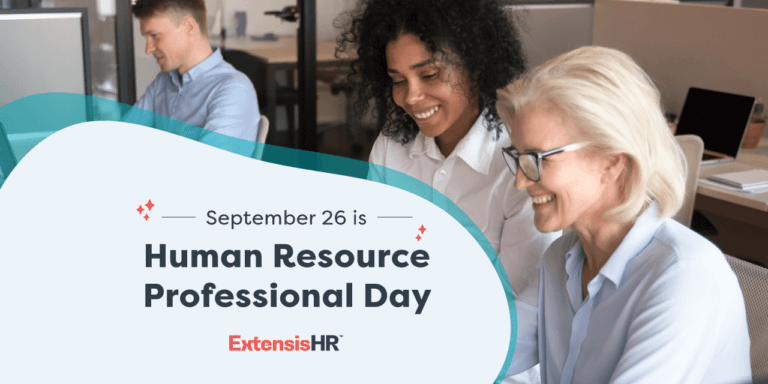5 HR Challenges Impacting Small Business Consulting Firms

Quick look: Small business consulting firms dedicate their time pinpointing and resolving operational issues for their clients. However, it’s equally important for these firms to tackle the key HR challenges impacting their own operations. In this blog, we’ll discuss important HR issues consulting firms should address to keep their businesses running smoothly.
The consulting industry’s framework has rapidly transformed over the years, bringing both profitable opportunities and competitors into the market. As a result, small business consulting firms are investing even more time, talent, and resources on meeting client objectives and keeping customers satisfied.
Though client needs are important, these firms must also manage obstacles impacting their own employee operations. Keep reading to discover which HR challenges are most impacting today’s small business consulting firms and how partnering with a professional employer organization (PEO) can help overcome them.
Employee recruitment and retention
Top talent on a small business consulting firm’s team enhances their competitive edge. New hires bring fresh perspectives and modern skills, while seasoned employees have the experience and insight to understand long-term clients’ evolving needs. To gain these advantages, consulting firms need strong recruitment and retention strategies in place.
Consulting firms often face various recruiting challenges, with the leading issue for 76% of recruiting experts being attracting qualified candidates. Competitor job openings, specialized industry requirements, and experience preferences shrink the talent pool for available roles. Consultants also dedicate extensive work and focus on their clientele; meeting these demands can limit firms’ bandwidth to handle job postings, vet resumes, and coordinate interviews.
However, many other concerns may affect firms’ employee retention strategies. Though great onboarding increases employee retention by 82%, some businesses don’t have enough resources to invest in their new hires’ development. Employee health and wellness programs are another factor. According to one study, 47% of employees who left their jobs did so to seek out better employee benefits. Consulting firms that offer limited healthcare packages risk lower retention rates.
Compliance with industry standards
Consulting firms serve a wide range of industries. Some help organizations under the same market umbrella, such as seasoned tech consultants working alongside leaders in small tech startups. Others deliver support to individuals or companies outside their industry sphere. No matter the circumstance, one HR fact stands true: businesses must be compliant to operate.
Achieving adherence requires consultants to follow industry standards across multiple categories, such as taxation practices, cybersecurity protections, workers’ labor rights, workplace discrimination and harassment prevention, and health and safety protocols.
They also need to be vigilant of laws within their clients’ industries and any additional requirements set by state and local governments. Small business consulting firms without a well-versed compliance plan risk hindering operations due to missing regulatory rules or changes.
Learning and development training
Training employees beyond the onboarding stage unlocks many advantages for employers. Companies that invest in professional development have a 24% higher profit margin and increase their team’s probability of attracting clients over competitors. Employees are also more appreciative of businesses offering training opportunities, with 58% stating professional development contributes to job satisfaction.
Career growth learning like advanced education classes, skillset certifications, and succession planning is a safety net for consulting firms’ future workforce expansion and business goals. Still, establishing a learning and development strategy can be an HR challenge for consulting firms. Setting up and managing development opportunities is a time-consuming process, especially when course personalization and verifying completed learning are involved.
Additionally, firms need to strategize how to give employees the flexibility to participate in training without impacting their productivity with daily responsibilities.
HR administration
Behind every rewarding HR strategy is a trail of administrative paperwork. Documenting policies ensures that decisions and changes are accessible to the right people. Payroll records help firms confirm employees’ wages, payment history, and taxation information. Administrative paperwork even gives employees a clearer picture of their benefits and perks, such as insurance plans and options for leaves of absence.
And while administration is a necessary part of employee operations, there are still obstacles small business consulting firms face. First, creating HR documents can be a hassle when a firm’s team requires more in-depth human resource knowledge. Secondly, firms must create an efficient system for organizing and storing approved paperwork to prevent records from being mislabeled or misplaced.
Finally, consulting firms must agree on how documents should be regularly monitored and updated when necessary. Without conquering those issues, administrative processes can become a dysfunctional burden instead of a game-changing activity.
Company culture management
Consulting firms’ success depends on their ability to empower their employees. Improving company culture makes this task more doable. Through a comprehensive company culture, employees gain access to tools and opportunities that motivate, support, and celebrate their hard work. This HR strategy also benefits employers’ business goals. Companies with strong cultures are 89% more likely to have high customer satisfaction ratings; these same businesses report achieving 25% workforce growth over a three-year period.
While the benefits of a positive culture are significant (such as improved employee morale, increased productivity, and better client relationships) the process of creating and maintaining this culture can lead to additional management responsibilities. Firms must carefully balance the workplace needs of their consultants with the expectations of their clients, which can be a complex task.
Moreover, actively gathering and analyzing employee feedback to understand which cultural aspects are effective and which need improvement requires continuous attention and dedication. Ultimately, while developing company culture is demanding, the long-term rewards make it a worthwhile investment.
Overcome HR challenges with ExtensisHR
As a consulting firm, you understand the value of having collaborative and insightful support to adapt and improve business operations. ExtensisHR delivers that level of masterful support with human resource responsibilities. As a certified professional employer organization (CPEO), we customize HR solutions for consulting firms. Our award-winning services improve your employee operations by:
- Strengthening the hiring process with full-scale recruitment services, given at no extra cost for PEO partners
- Connecting employees to enterprise-level benefit packages that encourage retention, health, and wellness
- Giving small business consulting firms a dedicated team, including an Account Manager, HR Business Partner, Payroll Specialist, and Implementation Manager to oversee every aspect of their solution
- Offloading HR administration, which offers your team more organization and time flexibility
- Ensuring company policies align with your workplace culture and industry standards
- Handling the strategy, execution, and organization HR administrative documents and responsibilities
- Creating a thorough roadmap for employee-centric training, from onboarding to advanced professional development
- Addressing HR needs and inquiries through human-first customer support at our Employee Solutions Center (ESC)
When your clientele list grows, so do your overall responsibilities. With ExtensisHR by your side, you can focus more on growing success rates while we handle your HR and people operations.
Contact our team today to discover how the ExtensisHR difference will improve your firm’s HR management.



